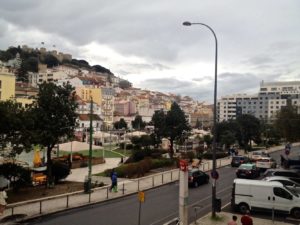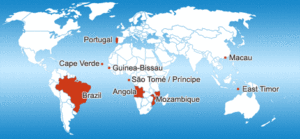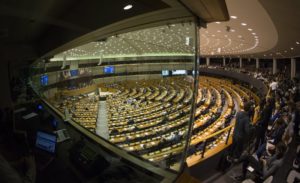‘For me, Mouraria is like the Tower of Babel, built and rebuilt every day, despite the diversity of languages and its perfect disharmony’ – (Fatima, teacher and descendant of Cape Verdean migrants)
 The history of Lisbon and Mouraria – one of the city’s oldest quarters – both originate from the presence of diverse people and cultures. In 1143, Lisbon was conquered from the Moors by King Alfonso Henriques, becoming a Christian city. The birth of Mouraria goes back to the same period, built outside the walls as the only territory where Moors were authorized to reside.
The history of Lisbon and Mouraria – one of the city’s oldest quarters – both originate from the presence of diverse people and cultures. In 1143, Lisbon was conquered from the Moors by King Alfonso Henriques, becoming a Christian city. The birth of Mouraria goes back to the same period, built outside the walls as the only territory where Moors were authorized to reside.
 In the 16th century, the first black migrants were forced into slavery in Lisbon, in that era the largest European centre of the flourishing slave trade. The number of slaves present in the capital reached 10% of the total population, that time comprising 100,000 inhabitants.
In the 16th century, the first black migrants were forced into slavery in Lisbon, in that era the largest European centre of the flourishing slave trade. The number of slaves present in the capital reached 10% of the total population, that time comprising 100,000 inhabitants.
In the 18th century, the rebuilding of the city – after its apocalyptic earthquake on All Saints Day, 1 November 1755 – led to significant flows of migrant workers from Galicia, Spain’s most north-western province. In the course of the 19th and 20th century, an exodus from the countryside ignited major demographic growth in the capital just as migration from the Portuguese colonies, in response to the need for labour.
 On 25 April 1974, Portugal became a democracy after 48 years of dictatorship. Between April and November 1975, Portugal took in half a million Portuguese and their descendants from its ex-colonies in Africa.
On 25 April 1974, Portugal became a democracy after 48 years of dictatorship. Between April and November 1975, Portugal took in half a million Portuguese and their descendants from its ex-colonies in Africa.
At the end of the ‘80s, a growing number of migrants began to arrive from Brazil, benefitting from a special provision for regularisation. Finally, from the ‘90s onwards, migration towards Lisbon has involved new areas such as Eastern Europe (Ukraine, Romania) and Asia ( Bangladesh, India).
 Mouraria is the most multicultural neighbourhood of the capital. Here you find everything from African grocers to Chines tea, Indian clothing, religious talismans, Bengali restaurants, mosques and halal butchers. The percentage of foreign residents (25%) is well above the average for the city (10%) and the nation (less 4%).
Mouraria is the most multicultural neighbourhood of the capital. Here you find everything from African grocers to Chines tea, Indian clothing, religious talismans, Bengali restaurants, mosques and halal butchers. The percentage of foreign residents (25%) is well above the average for the city (10%) and the nation (less 4%).
Considered until recently a socially degraded area – situated close to the historical city centre – the neighbourhood is nowadays a breeding ground for integration with tastes, sounds and smells from every corner of the world.
 In the heart of Mouraria resides the Associação Renovar a Mouraria (Renovate the Mouraria). This NGO not only develops activities to support the local community (i.e. Portuguese lessons for migrants, a legal help desk, empowerment courses for women and educational support for children) but also organizes cultural events and festivities linked to Saint Anthony in June, when the streets fill with music and the smell of grilled sardines.
In the heart of Mouraria resides the Associação Renovar a Mouraria (Renovate the Mouraria). This NGO not only develops activities to support the local community (i.e. Portuguese lessons for migrants, a legal help desk, empowerment courses for women and educational support for children) but also organizes cultural events and festivities linked to Saint Anthony in June, when the streets fill with music and the smell of grilled sardines.
Bom fim de semana Enjoy the weekend (pics Sapo)

 Twenty EU states have golden visa or similar programs.
Twenty EU states have golden visa or similar programs. In the past six years – between October 2012 and January 2019 – over 7000 golden visas have been issued by the Portuguese authorities. In particular to Chinese (> 4000), followed by Brazilians, South Africans, Turks and Russians. It yielded the treasury the sweet amount of 4.3
In the past six years – between October 2012 and January 2019 – over 7000 golden visas have been issued by the Portuguese authorities. In particular to Chinese (> 4000), followed by Brazilians, South Africans, Turks and Russians. It yielded the treasury the sweet amount of 4.3  Just like luxury goods, residence rights are for sale. A multibillion-euro industry but not without risks. Real estate has always and everywhere been attractive to money laundering, corruption and tax evasion.
Just like luxury goods, residence rights are for sale. A multibillion-euro industry but not without risks. Real estate has always and everywhere been attractive to money laundering, corruption and tax evasion. A special commission of the European Parliament suggested
A special commission of the European Parliament suggested  The majority in the Portuguese Parliament even wants to go a step further in the residency scheme for wealthy foreigners by introducing ‘
The majority in the Portuguese Parliament even wants to go a step further in the residency scheme for wealthy foreigners by introducing ‘